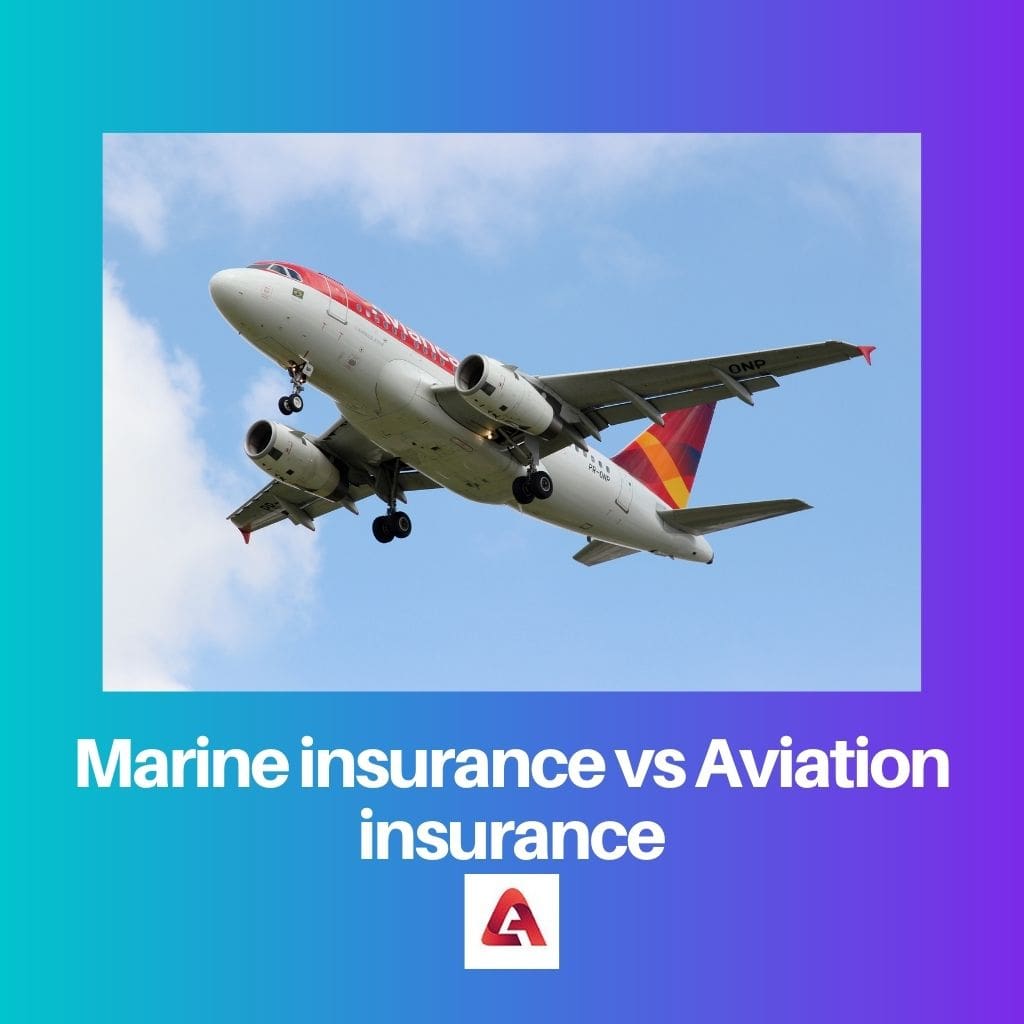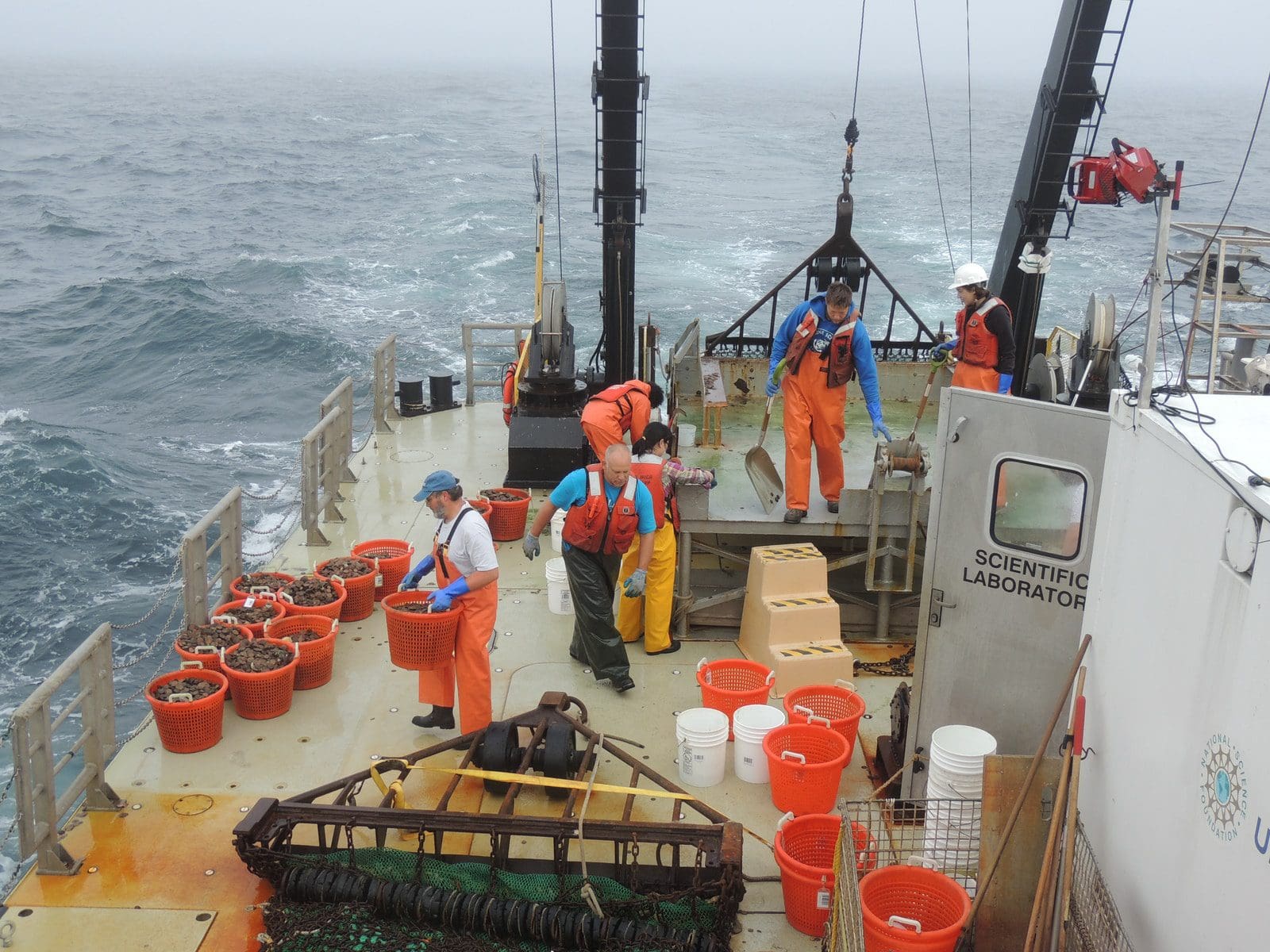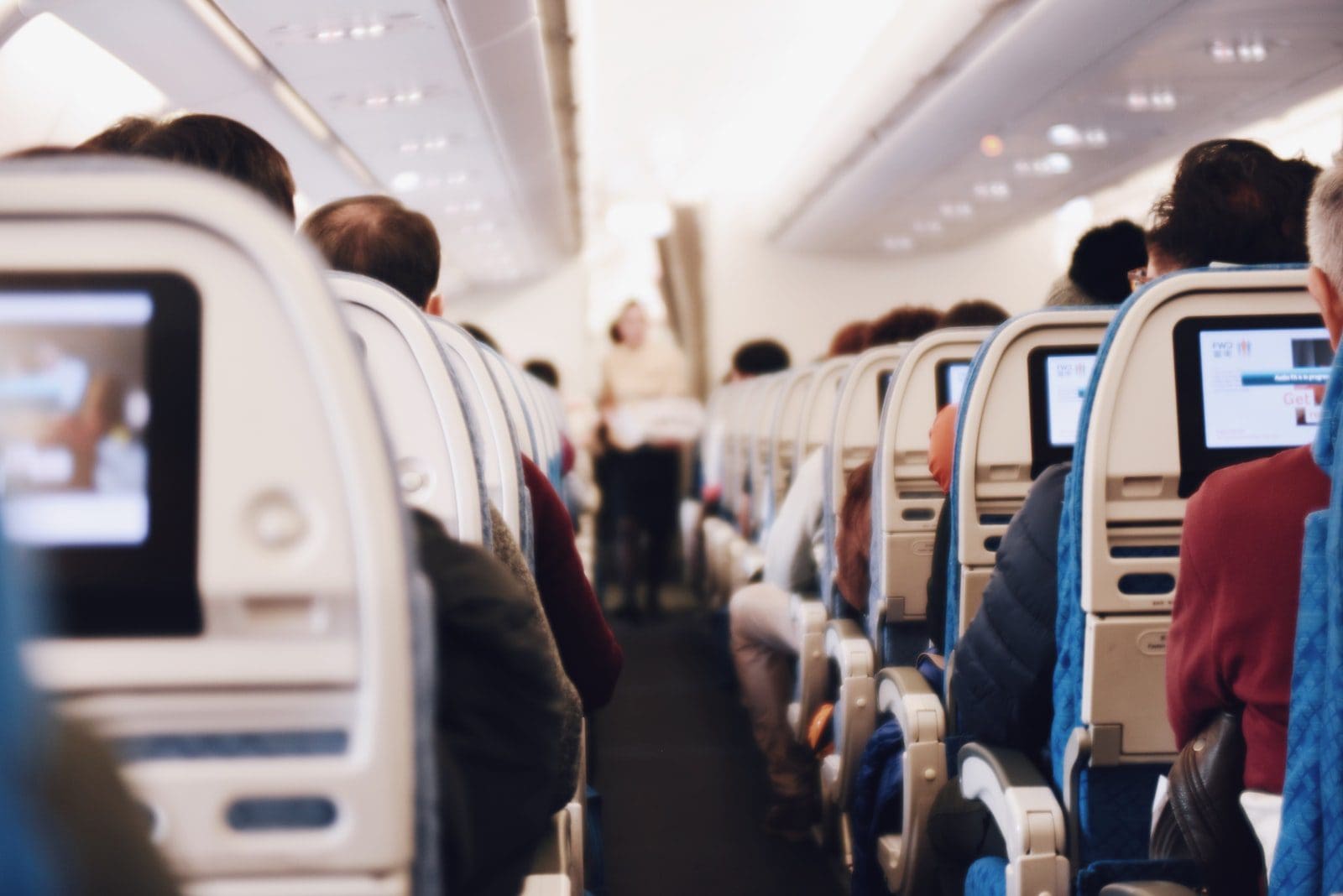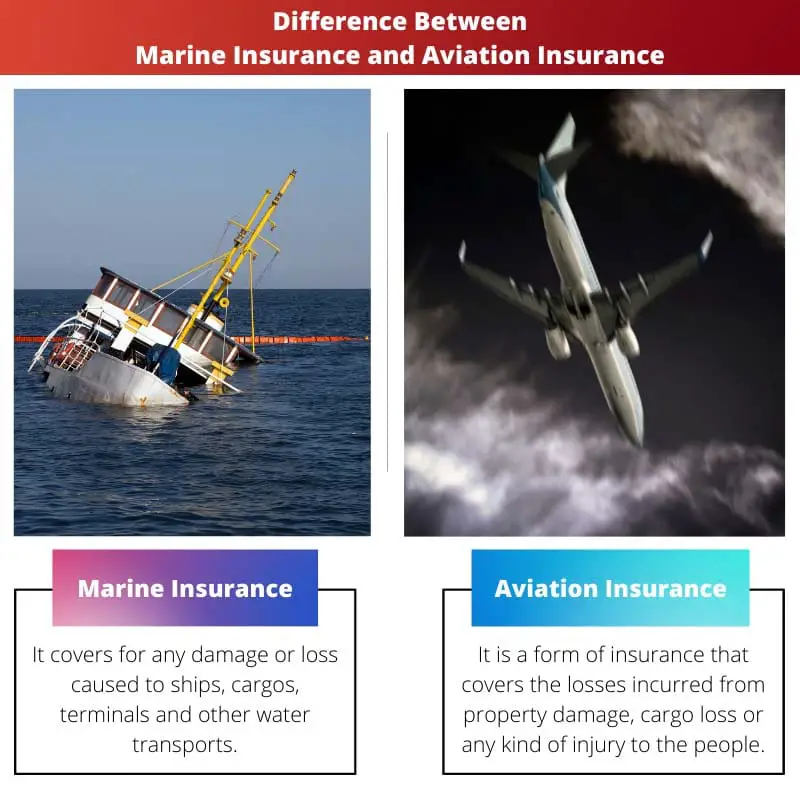Marine insurance provides coverage for risks related to the transportation of goods and vessels over water, offering protection against perils like sinking, piracy, and collisions. On the other hand, aviation insurance safeguards against risks associated with aircraft operations, including accidents, liability, and damage to the aircraft or third-party property.
Key Takeaways
- Marine insurance covers losses or damages to ships, cargo, and other marine assets during maritime transport, including protection against perils at sea.
- Aviation insurance covers losses or damages related to aircraft, passengers, crew, and third parties, offering protection against aviation-specific risks and liabilities.
- Both types of insurance address the unique risks associated with their respective modes of transportation, with marine insurance focusing on maritime assets and aviation insurance covering aviation-related assets and liabilities.
Marine Insurance vs Aviation Insurance
The difference between Marine Insurance and Aviation Insurance is that the former covers losses or damages related to ships, terminals, cargo, and other risks in marine services. While the latter covers damages or losses related to aircraft operations and other related risks in the Aviation industry.

Marine Insurance provides coverage for any damage or loss caused to ships, cargo, terminals and any other water transport with the help of which goods and assets are transferred, received and held between various points of origin and the final terminus.
Aviation Insurance provides coverage for damages and losses related to the ownership, maintenance and operation of aircraft or other flying machines, including hangars, airports, injury to people and cargo loss or damage.
Comparison Table
| Feature | Marine Insurance | Aviation Insurance |
|---|---|---|
| Subject Matter Insured | Ships, cargo, and offshore structures | Aircraft, drones, and related components |
| Perils Covered | * Loss or damage due to sinking, collision, stranding, fire, theft, piracy, and natural perils (storms, waves, etc.) * War and civil unrest * Cargo spoilage or loss of value | * Loss or damage due to accidents, crashes, mid-air collisions, fire, theft, and vandalism * Liability for injuries or death to passengers, crew, and ground personnel * Damage to property on the ground * War and terrorism |
| Types of Coverage | * Hull insurance (covers the vessel itself) * Cargo insurance * Protection and Indemnity (P&I) insurance (covers liability for crew injury, cargo damage, and pollution) * War and Strike (W&S) insurance * Loss of Hire insurance (covers loss of income if a vessel is damaged) | * Hull and liability insurance (combined coverage for the aircraft and legal liabilities) * Passenger liability insurance * Hull war and terrorism insurance * Loss of Use insurance (covers loss of income if an aircraft is grounded) |
| Regulation | Governed by international maritime law and national regulations | Governed by international aviation treaties and national regulations issued by civil aviation authorities |
What is Marine Insurance?
Key Components of Marine Insurance
1. Hull Insurance
Hull insurance covers physical damage to the vessel itself. This includes the ship’s hull, machinery, and equipment. It provides protection against perils such as collisions, sinking, and other maritime accidents. Ship owners typically opt for hull insurance to safeguard their significant investment in the vessel.
2. Cargo Insurance
Cargo insurance protects the goods being transported by sea. It covers losses or damages to the cargo during the voyage. This type of coverage is essential for both shippers and consignees to mitigate financial risks associated with potential damage, theft, or other unforeseen events affecting the transported goods.
3. Freight Insurance
Freight insurance, also known as freight interest insurance, covers the financial interest of the party responsible for the transportation costs. It provides protection in case the cargo owner is unable to recover the pre-paid freight charges due to covered perils, ensuring that the shipping costs are not lost in the event of a loss.
Types of Marine Insurance Policies
1. Voyage Policy
A voyage policy provides coverage for a specific journey or voyage from one port to another. It is suitable for one-time shipments and offers protection throughout the entire transportation process. Once the voyage is completed, the coverage ceases.
2. Time Policy
Unlike a voyage policy, a time policy provides coverage for a specific period, regardless of the number of voyages undertaken during that timeframe. It is a more flexible option for businesses involved in frequent maritime activities, offering continuous protection over a set duration.
3. Mixed Policy
A mixed policy combines elements of both voyage and time policies. It provides coverage for a specified duration but also includes protection for individual voyages within that time frame. This option is suitable for businesses with varying shipping needs.
Exclusions in Marine Insurance
1. War and Strikes Risks
Most marine insurance policies exclude coverage for damages or losses caused by war, strikes, riots, and civil commotions. These events are considered high-risk and are typically excluded from standard marine insurance coverage.
2. Ordinary Leakage and Wear and Tear
Insurance policies may exclude coverage for damages resulting from ordinary leakage, wear and tear, and gradual deterioration. These exclusions ensure that the insurance is focused on unforeseen events rather than the natural aging or gradual breakdown of the insured items.
Claims Process in Marine Insurance
1. Notice of Loss
In the event of a loss or damage, the insured party must promptly notify the insurer or their representative. This notification triggers the claims process and ensures that the insurer is aware of the situation.
2. Survey and Investigation
After receiving notice of the loss, the insurer may appoint a surveyor to assess the extent of the damage and investigate the circumstances surrounding the incident. This step is crucial in determining the validity of the claim.
3. Claims Settlement
Once the survey and investigation are complete, the insurer and the insured negotiate the settlement amount. The insurer then disburses the agreed-upon sum to compensate for the covered loss or damage.

What is Aviation Insurance?
Types of Aviation Insurance
1. Hull Insurance
Hull insurance covers physical damage to the aircraft itself. This includes damage from accidents, collisions, or other perils like fire, theft, and vandalism. The coverage may extend to the entire aircraft or specific components, depending on the policy terms.
2. Liability Insurance
Liability insurance protects the insured party from third-party claims arising from bodily injury or property damage caused by an aviation-related incident. This coverage is essential for both aircraft owners and operators, as accidents can result in substantial legal and financial liabilities.
3. Passenger Liability Insurance
Passenger liability insurance focuses specifically on covering bodily injury or death of passengers aboard the insured aircraft. It ensures that compensation is available in case of accidents resulting in harm to passengers.
4. Cargo Insurance
Cargo insurance provides coverage for damage or loss of goods being transported by air. This is crucial for cargo carriers, ensuring that financial losses due to damage, theft, or other perils during transit are mitigated.
5. Non-Owned Aircraft Insurance
Non-owned aircraft insurance is designed for individuals or businesses that use or rent aircraft they do not own. This coverage protects against liability claims arising from the use of non-owned aircraft.
6. Hangarkeepers Insurance
Hangarkeepers insurance provides coverage for damage to aircraft while they are in the care, custody, or control of the insured party, such as an aircraft maintenance facility or hangar.
Factors Influencing Aviation Insurance Premiums
1. Type of Aircraft
The type and value of the aircraft play a significant role in determining insurance premiums. More expensive or specialized aircraft may have higher premiums due to increased replacement costs.
2. Operational Use
The purpose for which an aircraft is used, whether for private, commercial, or cargo transport, affects insurance costs. Commercial operations or transporting hazardous materials may lead to higher premiums.
3. Pilot Experience
The experience and qualifications of the pilot or pilots operating the aircraft impact insurance rates. More experienced and well-trained pilots may result in lower premiums.
4. Safety Measures
Adherence to safety regulations and implementation of risk management practices can positively influence insurance premiums. Insurers may offer discounts for stringent safety protocols.

Main Differences Between Marine Insurance and Aviation Insurance
- Nature of Risk:
- Marine Insurance: Covers risks associated with the transportation of goods over water. It includes risks such as sinking, piracy, and damage to cargo during transit.
- Aviation Insurance: Deals with risks related to the operation of aircraft. This can include coverage for damage to the aircraft, liability for passengers and cargo, and other aviation-related risks.
- Scope of Coverage:
- Marine Insurance: Typically covers goods in transit by sea, as well as related activities like loading and unloading. It may also include coverage for vessels themselves.
- Aviation Insurance: Covers a range of risks associated with aircraft, including damage to the aircraft, liability for passengers and cargo, as well as third-party liability on the ground.
- Perils Covered:
- Marine Insurance: Perils covered may include natural disasters (storms, earthquakes), accidents (collisions, grounding), and human-related risks (theft, piracy).
- Aviation Insurance: Covers perils such as accidents, crashes, hijacking, and other aviation-related incidents.
- Valuation of Insured Property:
- Marine Insurance: Often based on the value of the cargo being transported.
- Aviation Insurance: The valuation may include the value of the aircraft, liability limits for passengers and cargo, and other relevant factors.
- Transportation Modes:
- Marine Insurance: Primarily focused on sea transport, including ocean and sea voyages.
- Aviation Insurance: Covers risks associated with air transport, involving airplanes and other aviation vehicles.
- Regulatory Environment:
- Marine Insurance: Governed by maritime laws and regulations.
- Aviation Insurance: Subject to aviation regulations and international agreements, such as the Montreal Convention.
- Loss Mitigation:
- Marine Insurance: Measures to prevent losses may include proper packing of goods, choice of shipping routes, and adherence to safety protocols during loading and unloading.
- Aviation Insurance: Loss mitigation measures may involve adherence to aviation safety standards, pilot training, and regular aircraft maintenance.
- Industry Specifics:
- Marine Insurance: Commonly used for international trade and shipping of goods across oceans.
- Aviation Insurance: Essential for the aviation industry, covering airlines, private aircraft owners, and other entities involved in aviation activities.
- Claim Processing:
- Marine Insurance: Claims may involve complex processes due to the nature of international trade and the variety of risks.
- Aviation Insurance: Claims processing may involve investigations into the cause of accidents, coordination with aviation authorities, and liability assessments.
- Underwriting Factors:
- Marine Insurance: Factors considered may include the type of cargo, shipping routes, and historical loss data.
- Aviation Insurance: Underwriting factors may include the type of aircraft, its usage (commercial or private), pilot experience, and safety measures in place.
- Market Dynamics:
- Marine Insurance: Market conditions can be influenced by global trade patterns, economic trends, and geopolitical factors.
- Aviation Insurance: Market dynamics are influenced by factors such as airline profitability, safety records, and regulatory changes in the aviation industry.

- https://www.cii.co.uk/media/6559355/hkd_iti_syllabus_2015_v1.pdf
- https://scholar.smu.edu/cgi/viewcontent.cgi?article=3664&context=jalc

I found the comparison table particularly helpful, it really highlights the main differences between marine and aviation insurance
Yes, the comparison table was a smart addition
Agreed, it makes it much easier to understand the distinctions
Great article – a lot of key details covered. Enjoyed reading through it
I second that, it’s a very insightful piece
Agreed, the article was engaging
I think the discussion of types of marine insurance was particularly thorough and interesting
I found it to be a bit too detailed for my taste
Yes, it provided a lot of valuable information
This article is very informative and well written. It is comprehensive and provides a clear view of the differences between marine and aviation insurance
Right. I enjoyed reading through it, great job!
I concur. It would have been useful to include some examples of when to use these types of insurance
A detailed piece, but it captured my attention with its depth of information
It certainly was an engaging read
I particularly appreciated the detailed explanation of the various types of marine insurance
Yes, it was very enlightening
I found the comparison between marine and aviation insurance to be intriguing
Agreed, it was an interesting read
This was a well-organized, well-researched and well written article, loved it!
The article is a little verbose and could have been more concise while still maintaining the integrity of the information presented
I’m with Rmoore on this, a more concise article would be better
I disagree, I appreciate the comprehensive information
This article provides an excellent overview of the main differences between marine and aviation insurance
I agree, it was very eye-opening
Quite informative, I learned a lot